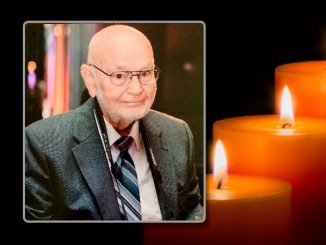
Victor “Bruce” Perritt was convicted in 1983 for the 1981 rape, torture and murder of Barbara Jo Brown, an 11-year-old Luling girl.
Perritt, who was 17 at the time of the crime, was convicted and only one vote away from receiving the death penalty. Instead, he received a mandatory life sentence. John Brogdon, Perritt’s co-defendant, was 19 at the time of the crime and was convicted and executed.
Following the U.S. Supreme Court’s ruling that mandatory life sentences given to juveniles are unconstitutional, Perritt’s sentence may receive a review and a possible reduction.
Former District Attorney Harry Morel said the case was one of two over his 33-year career where he sought the death penalty.
“It was just terrible. It had to be a death penalty,” Morel said.
Morel recalled the events.
“(Brown) was a local girl. They met her. They knew her and ended up on the levee, raped her, tortured her and murdered her and so one of those guys got the death penalty the other guy was 17 and the jury gave him life,” Morel said. “We missed it by one. (Perritt) was only 17 – they said he was too young.”
When Sheriff Greg Champagne was an assistant district attorney, he assisted the prosecution in a retrial Brogdon received after the Supreme Court overturned the initial ruling. That retrial ended in a reaffirmation of the death penalty.
Champagne said he also handled appeals in the case and is confident that if Perritt’s sentence is reviewed there will be no reduction in the sentence.
“They tortured and murdered an 11-year-old girl. I’ve slept good for the past 30 years with Brogden dead and Perritt serving life without parole,” Champagne said. “They deserve what they got. Perritt’s fortunate he didn’t get the death penalty. In fact, he already got some consideration.”
Brogdon was 19 at the time of the crime and was a special education dropout with an estimated IQ between 64 and 80, which would be considered mentally retarded. After being arrested he waived his right to counsel and admitted he and Perritt, who he claimed were both drunk at the time, picked up Brown at a convenience store and took her behind a Mississippi River levee. That’s where they repeatedly raped her, punched her and stabbed her with sticks and broken bottles. Brogdon also told officers Perritt hit Brown in the head with a brick.
Bobby Faucheux was Perritt’s court appointed attorney. He said all murder cases are awful regardless of the specifics of the case, but he understands the Supreme Court’s reasoning.
“The Supreme Court is the one that’s saying what somebody as a juvenile is entitled to. I’m not going against the Supreme Court,” Faucheux said. “I know it was a horrendous crime and he was found guilty, but the Supreme Court is now saying that’s cruel and unusual punishment to give a juvenile life without benefit (of parole).”
Faucheux said he is currently handling a case in St. John the Baptist Parish of another murderer who received a mandatory life sentence as a juvenile.
“What the D.A.’s office in this other case is willing to do is allow him, since there is no state statute that deals with it at this time, is to go to the non-homicide life sentence,” Faucheux said. “The minimum would be thirty years and then you would be reviewed by the parole board.”
Brogdon was electrocuted at the Louisiana State Penitentiary in Angola in 1987 after the U.S. Supreme Court refused to stay his execution on a 6-2 vote.
During a hearing before the execution Brogdon admitted he did not think he deserved clemency.
Perritt is currently incarcerated at Angola. He is 48.
Any review of Perritt’s sentence would have to be initiated by himself or his legal counsel.




Be the first to comment